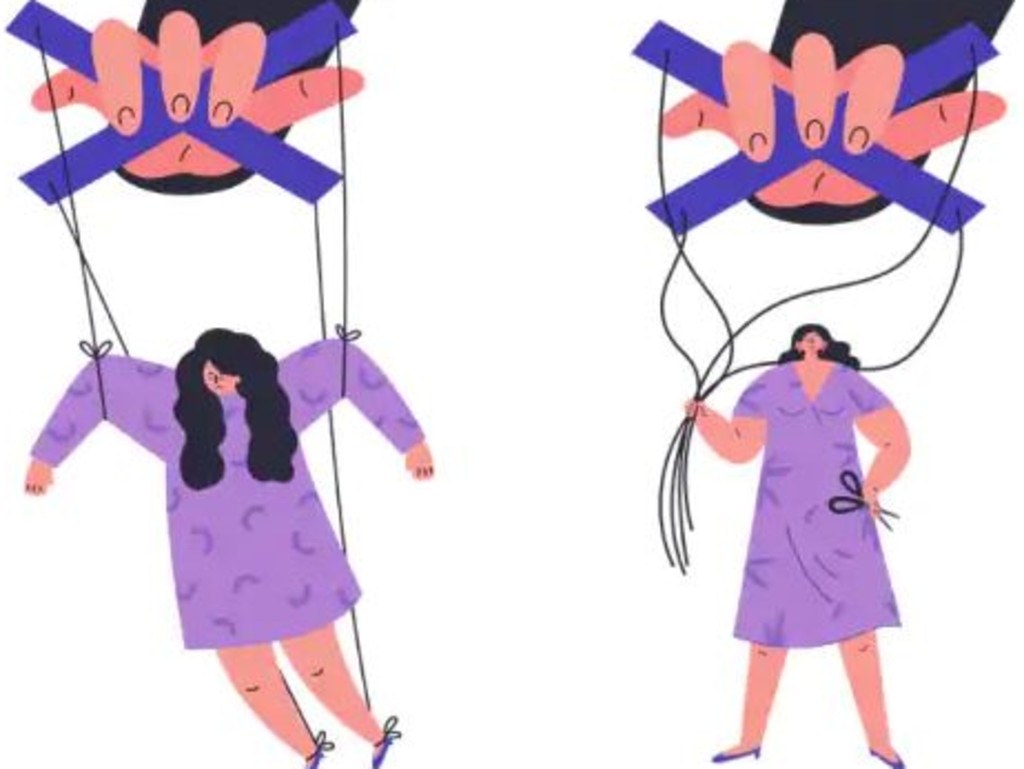A checklist for whether you’re in a toxic relationship (and how to get out if you are)
There are three questions you need to ask yourself to determine if you’re in a “toxic” relationship – but there’s a way out if you are.
Does your relationship add or detract from your overall happiness and self-esteem? Clinical psychologist Elisabeth Shaw shares the warning signals to look out for, and how to get out (safely).
If we were to reflect for a moment on the health of our relationships – intimate partners, parents, siblings and other relatives, friends, colleagues, employers – we would no doubt identify a few that are not as healthy as they could be, some that we have outgrown, and maybe one in particular that seems to have a consistent and negative impact on us.
In recent years, many psychological “buzz” words have entered our thinking and the word “toxic” is definitely one of them.
For more stories like this, go to bodyandsoul.com.au
WHAT IS A TOXIC RELATIONSHIP?
Toxic relationships include those that are violent, abusive, and involve coercive control, but for the purposes of this discussion, we will be focused on relationships that are marked by leaving us unhappy, drained and feeling bad about ourselves in possibly more subtle ways.
As our society has become more interested in psychological thought, terms such as “toxic relationships”, “gaslighting” and “narcissism” have entered common language. Books, magazine articles and online sources abound on these topics.
These concepts have helped us to become aware of relationship patterns that leave us feeling hurt or suffering. It can be quite a revelation when we awaken to how a relationship is not working for us and, in fact, is having a negative impact on our mental health.
The woman who, in midlife, realises she has been a puppet to the manipulations of her demanding mother for her whole life. The man who begins to recognise that his partner is forever criticising and belittling him. If we find ourselves losing our self-esteem, voice and value in a relationship, we are definitely in ‘toxic’ territory.

HOW TO IDENTIFY A TOXIC RELATIONSHIP
- Persistent unhappiness – feelings of sadness, anger, anxiety and resignation
- Lack of respect and constant conflict
- Competitiveness and jealousy
- Financial and social control
- Raising concerns and having them minimised, or dismissed
- One person having to sacrifice their needs to keep the other happy
- When these are elements that are more deeply and pervasively eroding our feelings about ourselves and the relationship over time, they can’t be put down to a “bad patch” or just a one-off bad fight.
A relationship can start off as seemingly “healthy” but ends up becoming toxic over time. In some cases, one partner is more committed to pleasing the other and works hard to meet their partner’s needs while sacrificing their own.
They continue in the belief that their partner loves them and wants the best for them. But instead, their partner has become controlling, withholds love, and uses criticism to undermine their confidence.
The partner who wants to please, has endured the situation for so long that they can be blind to how the power balance of the relationship has become uneven.

WHAT TO DO WHEN YOU REALISE YOUR RELATIONSHIP IS TOXIC
It can be a shock to realise that you have been living in an emotionally abusive relationship, with a manipulative and controlling significant other who really doesn’t care enough about you and has undermined your belief in yourself. Once you realise it is toxic and that it is more than just a “bad patch”, you may be confronted with many uncomfortable, distressing and even frightening considerations about whether to stay, or go.
Here are some steps to take on your journey:
1. Reach out to friends or family who can listen and support you without judgment. Some may have been trying to tell you that you are not being treated well and it is worth listening to their perspective.
2. Be honest with yourself. What will it really take for the situation to change? Acknowledge to yourself if you have done all you can realistically do to try and improve things.
3. Reflect on your levels of happiness and self-confidence now, as compared to an earlier version of yourself. Has your confidence grown, or diminished?
4. Start developing healthy boundaries that convey that to others that you expect to be treated well.
5. Don’t be too hard on yourself. It is understandable to hold on to hope about how good things used to be, or to be afraid of being alone, or to fear no one else will love you. Take it one step at a time.
6. Focus on yourself. By continuing to blame your partner, you keep giving them all the power and rob yourself of the energy you need to move forward.
7. Take stock. To move forward, you must understand how you got into a position where you gave up your control. Then, take the time you need to strengthen yourself to ensure it doesn’t happen again.

HOW TO HELP OTHERS IN A TOXIC RELATIONSHIP
Listen and let them know you believe in them, and care about them.
Reassure them they are not crazy, selfish, bad or any of the negatives things that they may have been told.
Take care that efforts to help don’t become toxic too – avoid taking over, or being critical.
Give them your perspective on their partner’s poor behaviour gently, and with as much neutrality as possible.
Watch how much they can take in, and stop when it seems too much.
Give them room and time to find their own way.
Offer suggestions for external help to can access, if they choose to do so.
MOVING AWAY FROM A TOXIC RELATIONSHIP WILL TAKE WORK
You might become stuck in your thinking or fearful about change, so getting external help from a professional can be invaluable for finding a way forwards.
Seeing a qualified couples’ therapist together could help you both to look at change – if both of you have an investment in staying together. It can also be of value to see a professional alone, so as to find your own feet in the discussions ahead.
Elisabeth Shaw a clinical and counselling psychologist specialising in couple and family work and the CEO of Relationships Australia NSW – a non-profit organisation that provides a variety of professional support services to those experiencing relationship difficulties.
This article originally appeared on bodyandsoul.com.au and was reproduced with permission



